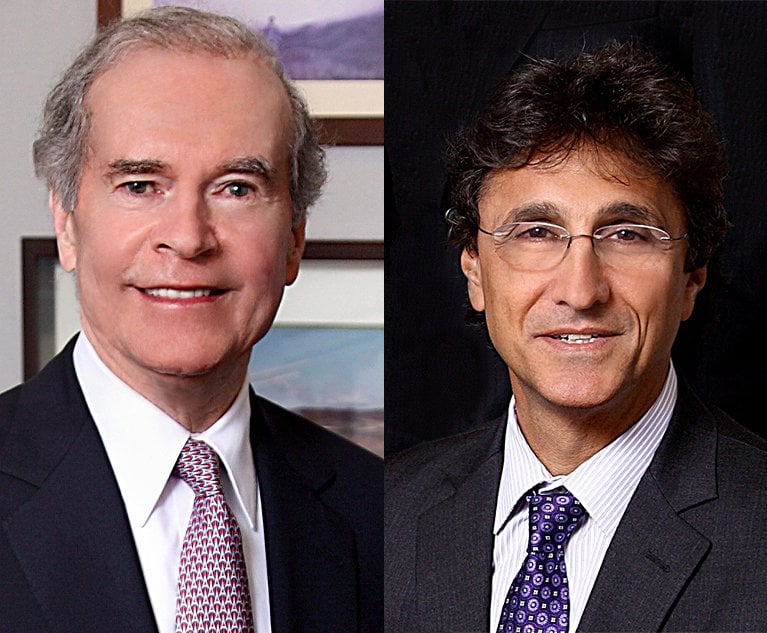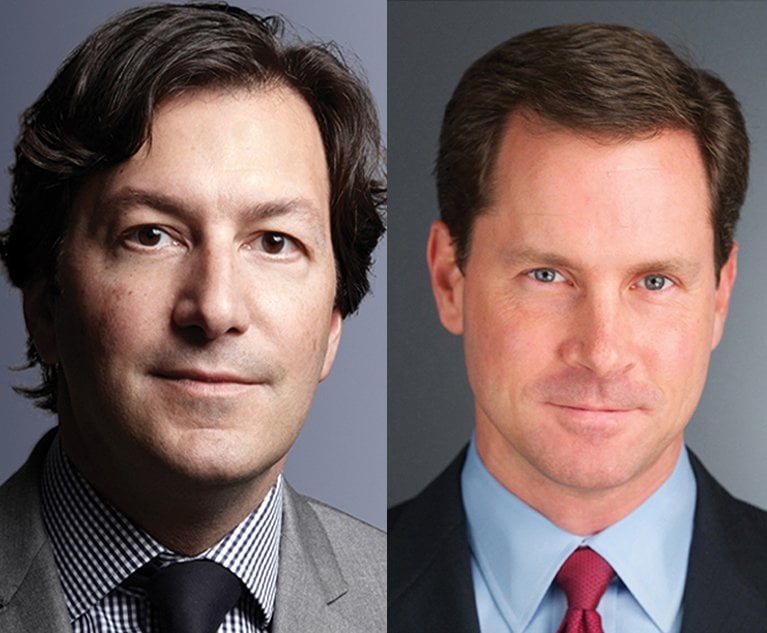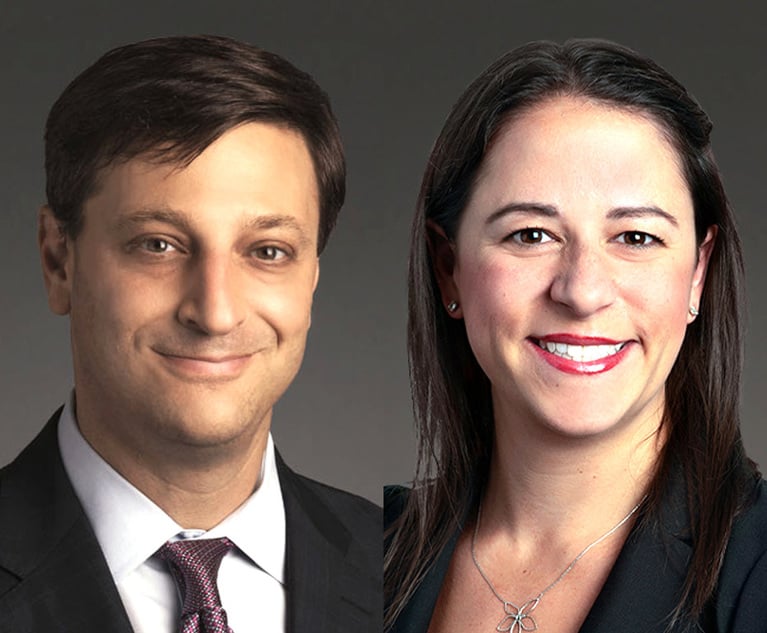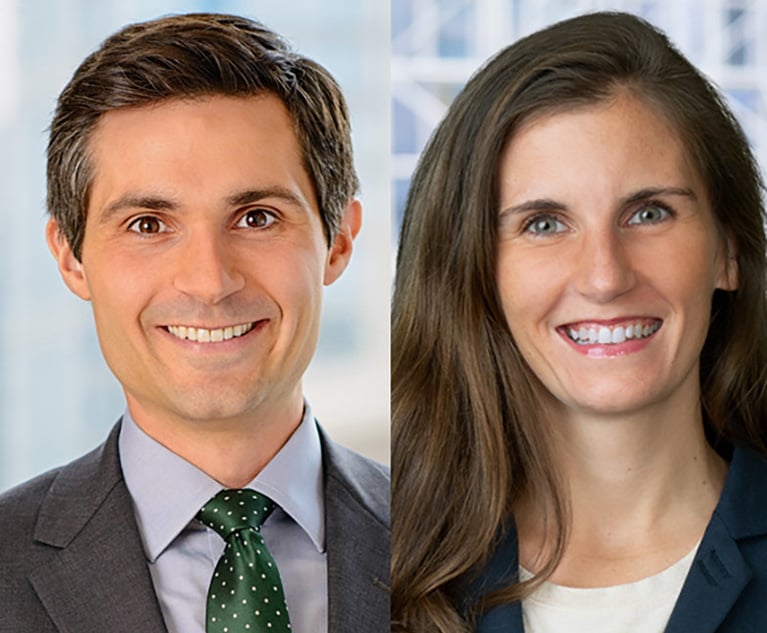
April 01, 2024 | New York Law Journal
Bills of Particulars and Partial Summary JudgmentIn its recent decision in 'Carroll v. Niagara Falls Memorial Medical Center', the Fourth Department held that partial summary judgment should be granted only as to theories or claims of malpractice that were not addressed, and that an expert affirmation submitted in opposition is not required to address every allegation in a bill of particulars.
By Thomas A. Moore and Matthew Gaier
13 minute read

April 01, 2024 | New York Law Journal
Ninth Circuit Affirms Dismissal Sanction for Text Message SpoliationIn a recent decision, the Ninth Circuit clarified and affirmed the use of Rule 37(e) as the standard for imposing sanctions for the loss of ESI and upheld the dismissal of a plaintiff's employment discrimination case as a sanction for intentional spoliation of text messages.
By Christopher Boehning and Daniel J. Toal
7 minute read

April 01, 2024 | New York Law Journal
Probable Cause and 'Bruen': Two Amendments CollideRecently, a judge in the Eastern District of New York announced a new legal standard for probable cause in gun cases in New York. Essentially, the court concluded that a significant increase in lawfully possessed guns in New York City has altered the probable cause equation in these cases. The government is seeking reconsideration of that ruling.
By Barry Kamins
12 minute read

March 29, 2024 | New York Law Journal
DOJ, FTC: Failure To Preserve, Produce Ephemeral Messages May Lead to Consequences That Are Anything but EphemeralThe DOJ and FTC issued a rare joint announcement warning of increasing consequences for parties that fail to properly preserve and produce ephemeral messages in response to antitrust investigations. These messages will be included in their standard preservation letters and specifications for all second requests, voluntary access letters and compulsory legal process.
By Jeane A. Thomas, S. Starling Marshall and Justin D. Kingsolver
9 minute read

March 29, 2024 | New York Law Journal
The Deutsche Bank LIBOR Case: When Justice Is OutsourcedIn 2019, two former Deutsche Bank traders were convicted of wire fraud and conspiracy charges, which the Second Circuit later reversed. This case highlights two alarming trends: the DOJ outsourcing criminal investigations to private law firms and targeted institutions placing the blame for alleged wrongdoing on low-level employees to avoid more serious criminal consequences themselves.
By Michael S. Feldberg and Laura Carwile
9 minute read

March 29, 2024 | New York Law Journal
The DOJ Cracks Down on AI-Powered CrimesIn recent public comments, Deputy Attorney General Lisa Monaco identified the emerging threat posed by AI as a top enforcement priority and announced that the DOJ will begin targeting crimes "made significantly more dangerous by the misuse of AI."
By Christian Everdell and Marvin Lowenthal
12 minute read

March 29, 2024 | New York Law Journal
Look and Listen: How To Conduct Effective Pre-Litigation InvestigationsIn short, if you are not conducting a robust pre-litigation investigation of any major case, you are handicapping yourself before you begin. Such work is productive, cost-effective and a force multiplier if done correctly.
By Michael J. Bowe
8 minute read

March 29, 2024 | New York Law Journal
Money Laundering in the ArtsTwo newer kinds of markets—the market for non-fungible tokens (NFTs) and the secondary market for sports and entertainment event tickets—have offered criminals new possibilities for laundering dirty money. And so far, the law has not kept up.
By Paul Tuchmann and Hannah Blonshteyn
8 minute read

March 29, 2024 | New York Law Journal
Out of the Shadows: SEC Test Case To Bring 'Shadow Trading' Into LightThe SEC is now at trial in an enforcement action against former biopharma executive Matthew Panuwat related to "shadow trading" activities. The trial will not only be the first major test of the SEC's "shadow trading" legal theory before a jury, but will also have significant ramifications for in-house counsel and compliance teams on how to train their employees on trading practices.
By Adrienne D. Gurley, Matthew T. Murphy and Brandon Wong
9 minute read

March 29, 2024 | New York Law Journal
Internal Investigations and Self-Disclosures in a Time of Enhanced Whistleblower IncentivesIn recent years, the DOJ has taken steps to incentivize disclosure of potential wrongdoing by companies and individuals. In light of new incentives for individual whistleblowers and the evolving expectations of enforcement officials, the stakes are high for in-house counsel and compliance officers to quickly assess the potential benefits and risks of making a voluntary self-disclosure.
By Matthew Sullivan and Tina Milburn
8 minute read
Trending Stories
- 1With a 7-Figure Book Deal and TV Adaptation on the Way, This Dechert Associate Remains Committed to Her Day Job
- 2Northwestern University Pritzker Law School Hit With Reverse Discrimination Lawsuit
- 3Biden Will Be First Lawyer-President Without a JD From the 'T-14' in a Century
- 4The Week in Data: A Look at Legal Industry Trends by the Numbers
- 5Settlement reached in lawsuit over death of clerk prior to $51 million jury award
More from ALM
- Morgan & Morgan Class Action Attorneys Detail Pathway to Success Within Cybersecurity and Data Privacy Practice 1 minute read
- Holwell Shuster & Goldberg Partners Leverage 'Hostile' Witnesses to Secure $101 Million Verdict Against Walmart 1 minute read
- Legal Speak at General Counsel Conference Midwest 2024: Mike Andolina, Partner, White & Case 1 minute read



